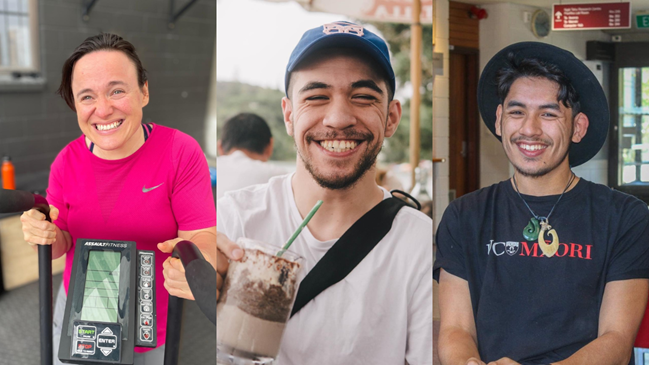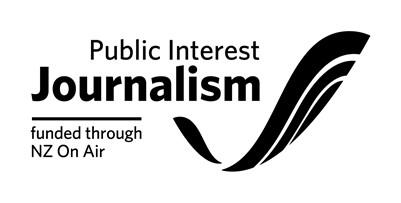In case you didn't know, today is World Cerebral Palsy Day
In New Zealand, approximately 7,000 people are affected to some degree by cerebral palsy.
To put that number in perspective, that’s roughly six times the number of people who’ve played for the All Blacks in 130 years. The staggering truth is around one in every 500 babies in New Zealand is born with Cerebral Palsy. That’s a LOT!
So, to celebrate World Cerebral Palsy Day, I thought it would be a good time to open up and share my experiences and those of others that are living with CP.
Cerebral palsy (CP) is a group of disorders that affect a person’s ability to move and maintain balance and posture.
I usually explain CP as me having weaker and fewer wifi connection bars to my body muscles than others. Cerebral means having to do with the brain. Palsy means weakness or problems with using the muscles.
CP is caused by abnormal brain development or damage to the developing brain that affects a person’s ability to control his or her muscles.
I was diagnosed with Cerebral Palsy at the early age of 5 months, with mild CP with left hemiplegia.
Some of my main inspirations come from my family and friends, who inspired me to be myself always and supported me through all the surgeries, battles and struggles. I owe a lot to them for making life easier for me.
Also a special mention to Jordan Milroy, Kurt Peterson and heaps of others who are my role models who have paved the way and changed my way of thinking about living with CP.
That’s my story, but I’m just one of 7000.
I’ve also asked Amy Hogan and Thomas Chin to share their stories.
Amy is a researcher and writer who is completing a Master’s degree in Psychology.
Amy – “The people that inspire me the most are the ones that work together in the community for positive change, not on an individual level but as a group. People such as Paul Farmer, who was a champion of medical equality in areas like Haiti.”
Thomas is a fourth-year Law student and Content Producer.
Thomas - “People that have inspired me to come from numerous different areas of my life. As a Māori law student, I can not go past the Mahi and influence of people such as Tā Moana Jackson and Justice Joe Williams for their ability to forge a path in the law for myself and te ao Māori as a whole. In the CP space, I think the people that inspire me the most are our young people living with CP, who continue to challenge and break down barriers authentically and unapologetically."
For me, some difficulties with my condition are doing basic motor skills, getting change, trouble with communication.
I found myself being shy about my disability and wouldn't open up.
I now have great pride in my disability. and am grateful to help share my experiences with all.
Amy and Thomas tell a similar story.
Amy - “My fatigue and stamina levels particularly during busy periods. Managing my mobility as it starts to change. My speech when I’m talking to strangers. Generally keeping well in periods like winter and through the COVID-19 pandemic.”
Thomas - “The main challenge about living with CP for me is finding the energy to do and achieve all I want to do. I am constantly on the go, jumping from place to place, kaupapa to kaupapa. However, with CP I have to be very cautious at times to ensure I don’t run out of energy. This can often be quite frustrating as there is so much more I want to do but I have to give myself a reality check at times.”
However, there are upsides and strengths to living with my CP.
This includes a new lens on life that helps me see things in a different way, the ability to problem solve anything that gets thrown my way and adapt to any situation.
I realise that having a disability could look like an opportunity, an opportunity to be different and challenge the norm. Amy - “I can’t say that there aren’t specific positives to the condition, but I do like the worldview that CP is able to give me and the empathy and connection with the community that I have built throughout the years.”
Thomas - “I would not be the person I am today without my disability. Growing up as I have has instilled an in-built resilience and patience I would not otherwise have. Additionally, it has opened so many doors for me and created lots of opportunities through sport, professional development opportunities, and personally in my day-to-day life.”
My advice to people who feel uncomfortable approaching and reaching out to those with Cerebral Palsy is to go for it. Yes, you’ll have to be patient but, like most people, we love a good chat. So, make an effort, support us, help us. We are normal people like everyone else.
Amy - “One of the most important things that people need to remember about CP is that there is support and community available. It can take a while to adjust to the changes and shifts in the condition. Young people need to have a good understanding of their condition as they leave school or the paediatric system so that they can start making adjustments as necessary. E.g. in how they approach mobility differences and challenges.”
Thomas - “Keep being unapologetically you, knowing that there's always the potential for someone to draw strength, courage and inspiration from bearing witness to your success.”
To end I’ll let Amy and Thomas share their views on a perfect world.
Amy - “In my perfect world, disability would be framed as another aspect of the community and universal design would be standard practice”.
Thomas - “A perfect world is one where those who face the greatest adversity, regardless of the cause, no longer have to fight to be seen or heard. Moreover, it is a world built on the understanding that an equal opportunity for success does not mean everybody gets the same thing, instead, it acknowledges that everybody's journey is different as is their measure of success”.




